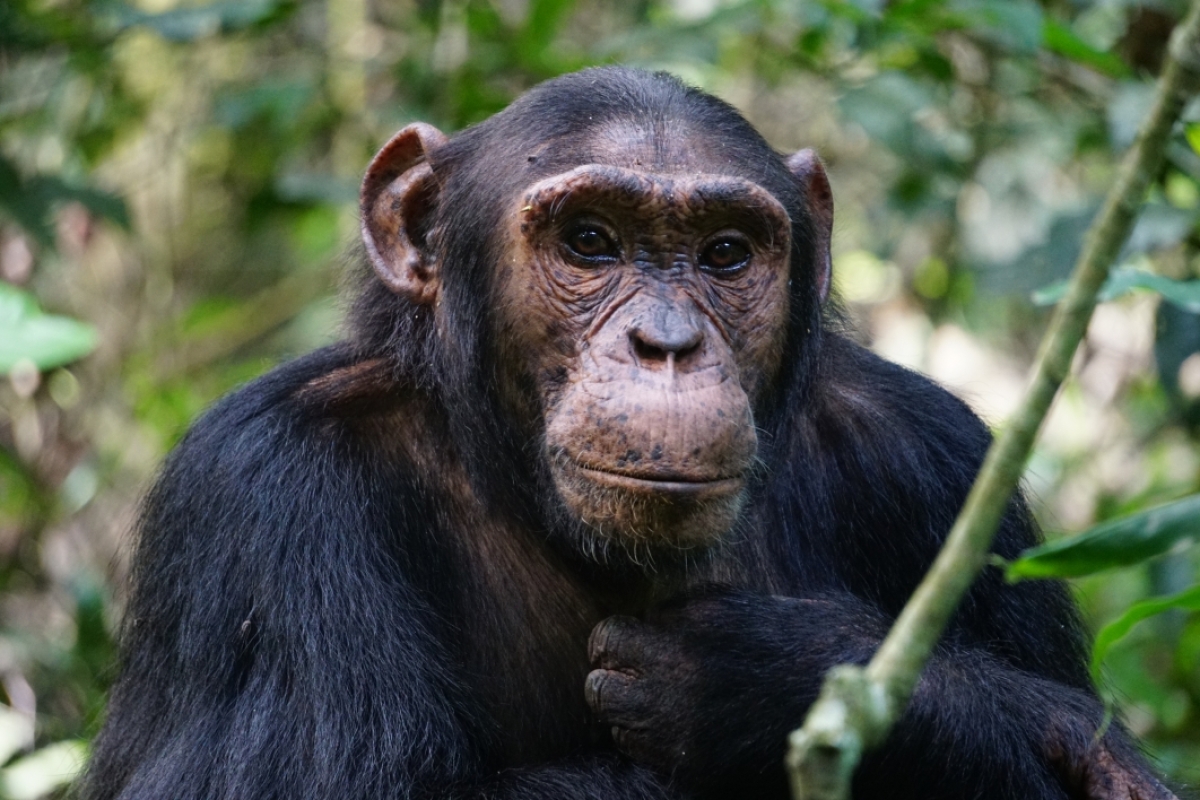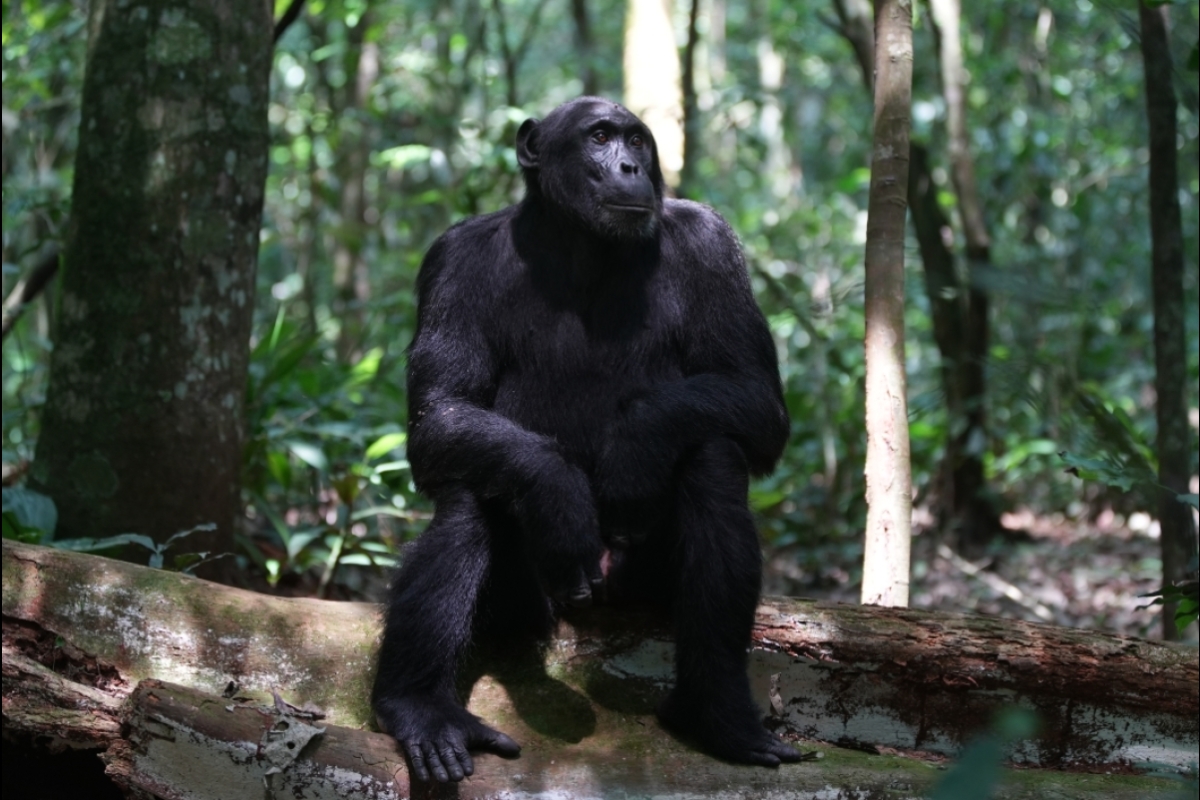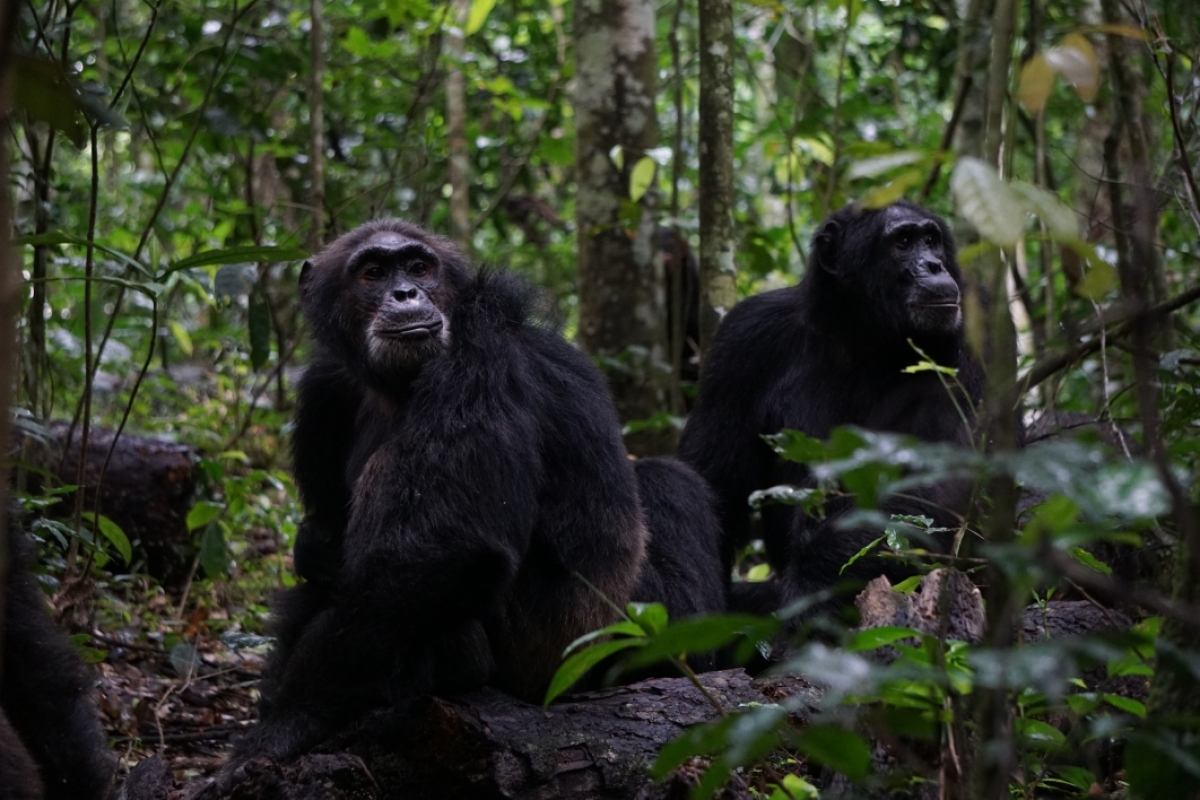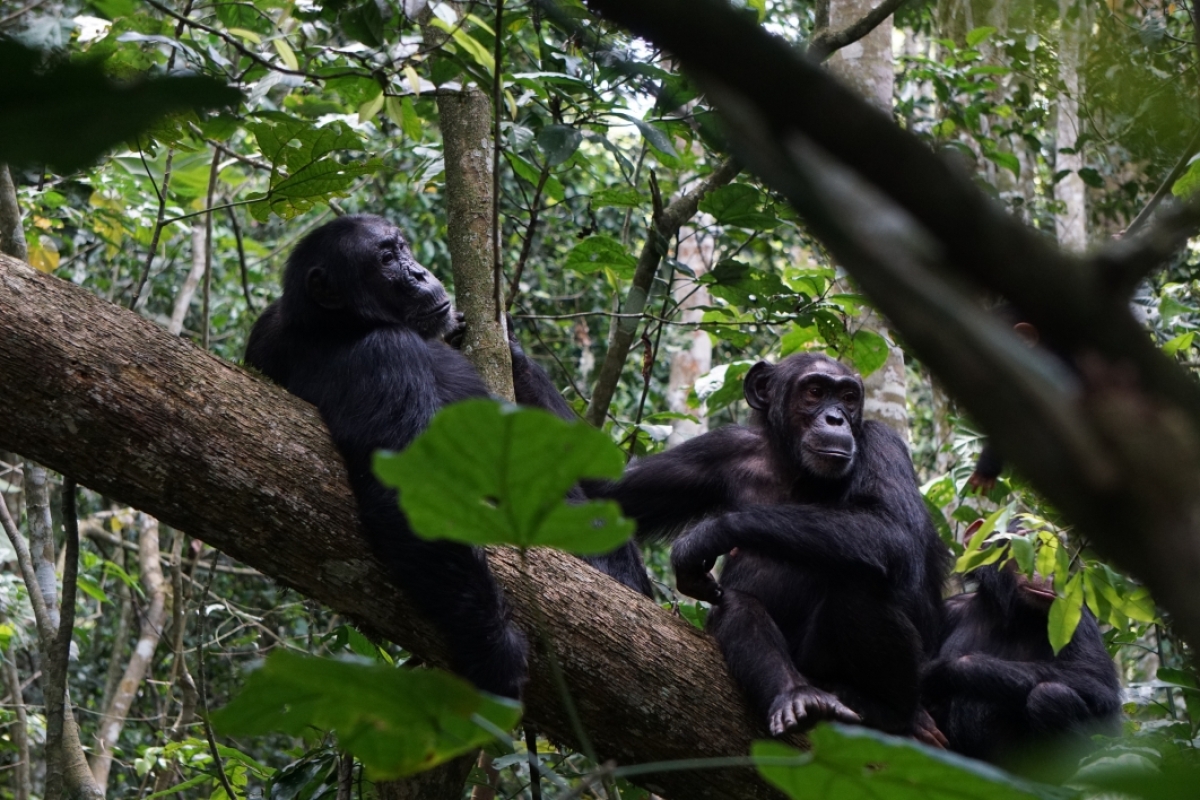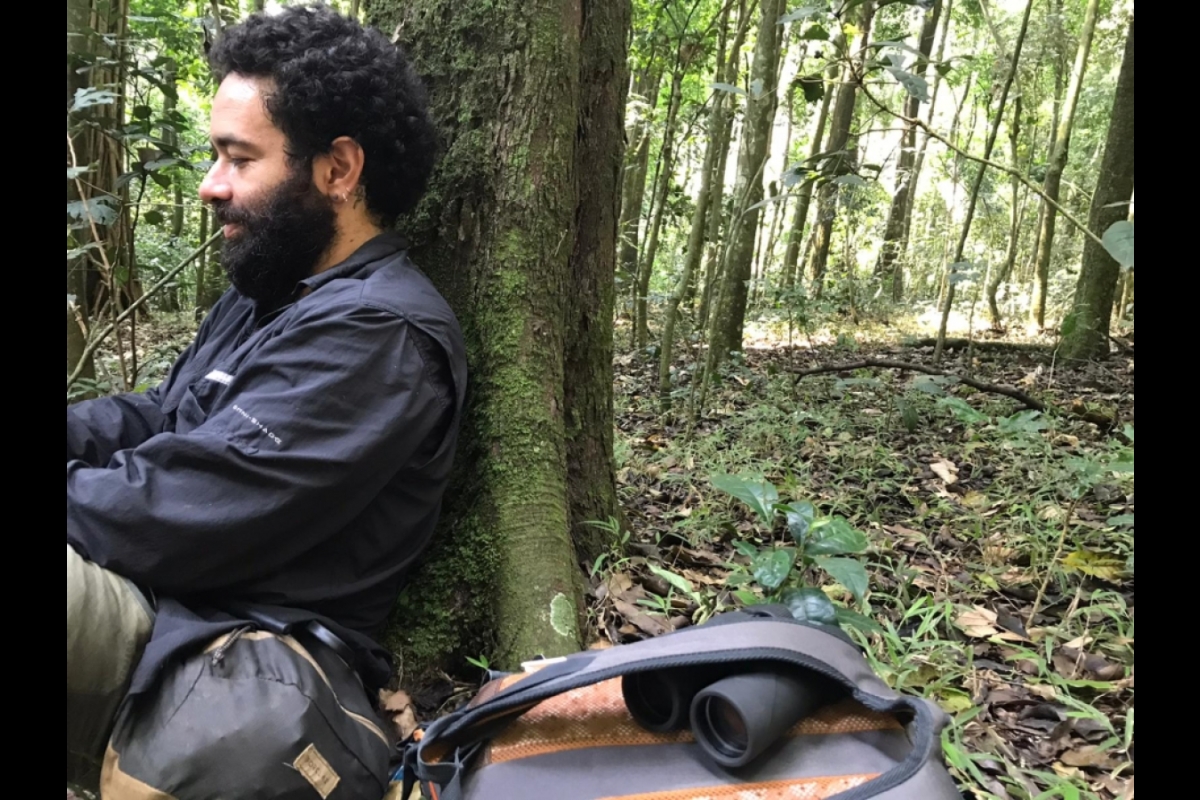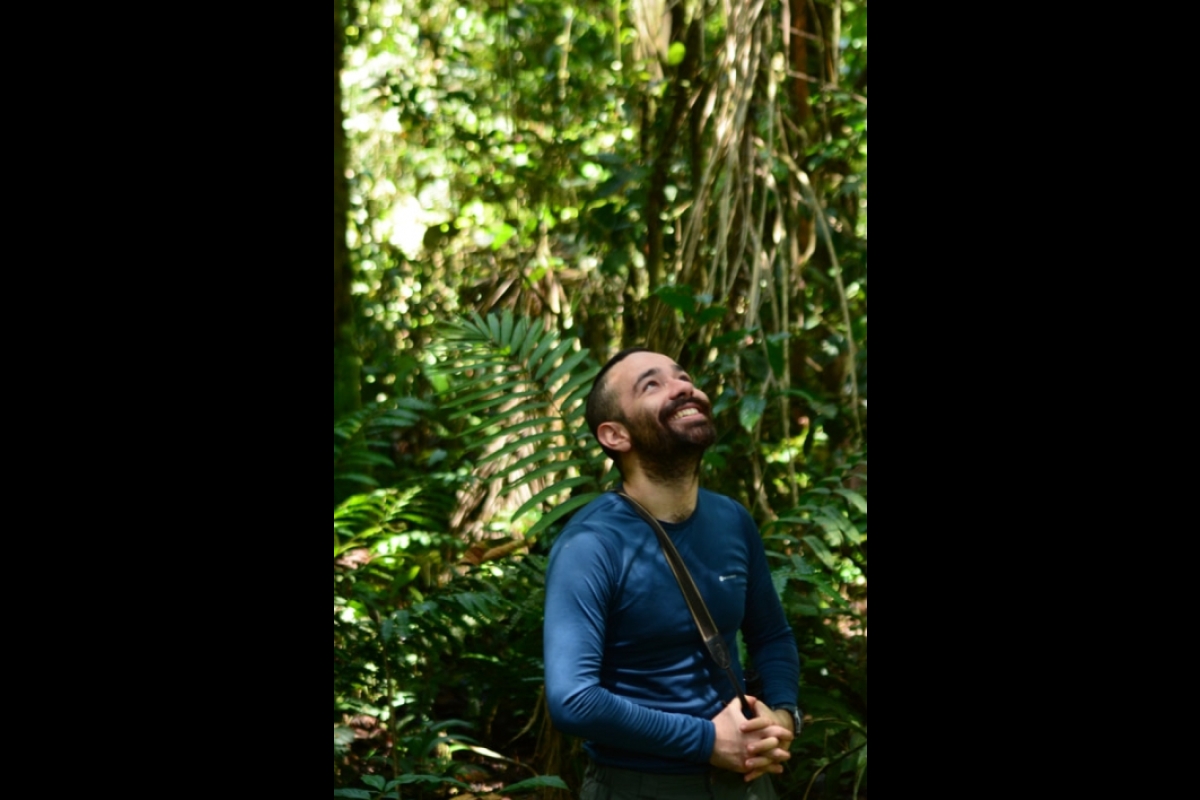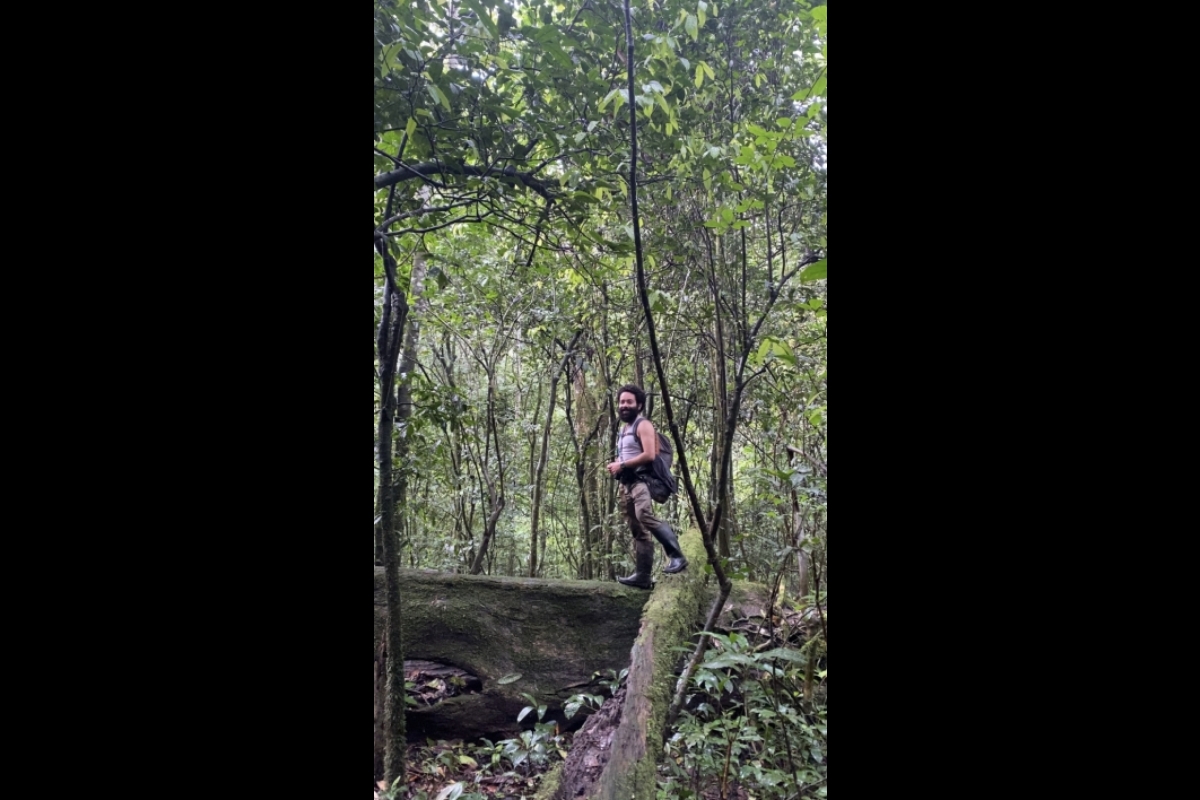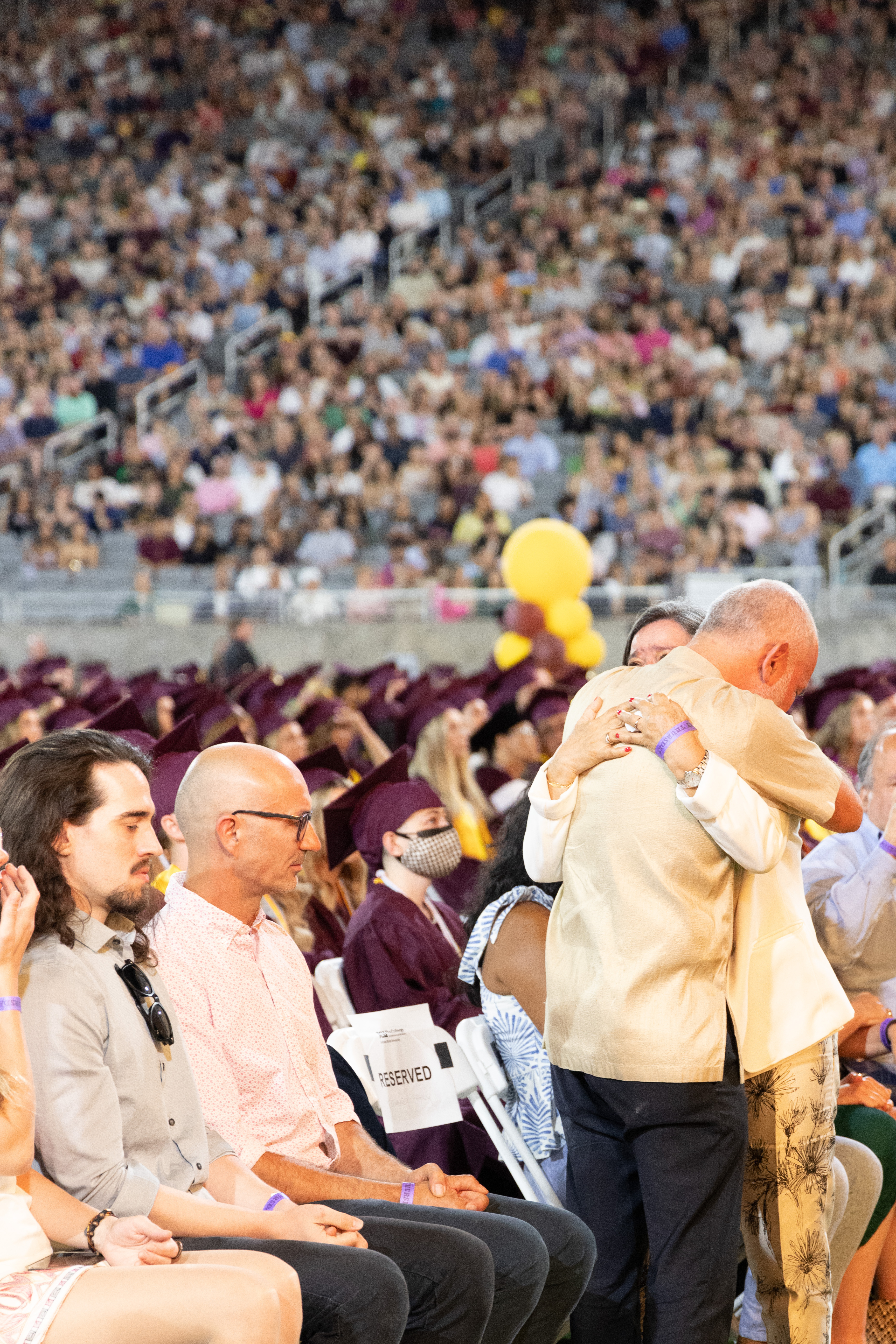'An act of love': Family accepts son’s posthumous ASU degree
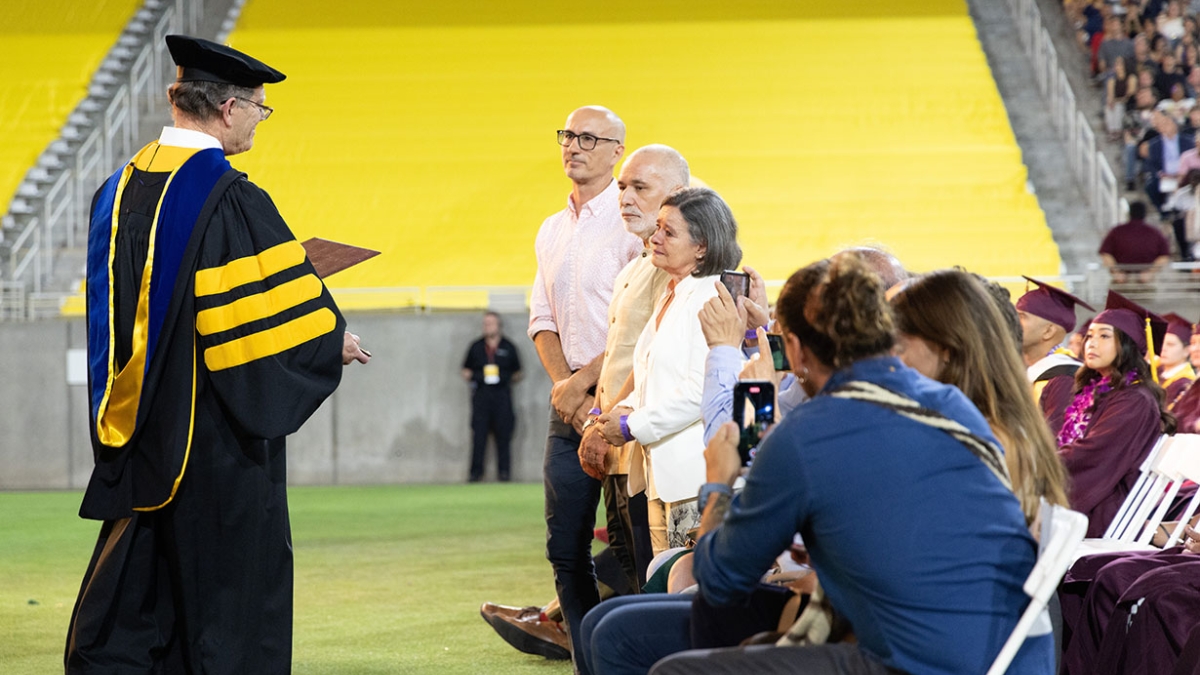
Patrick Kenney (left), dean of The College of Liberal Arts and Sciences, presents his posthumous degree to Sebastían Ramírez Amaya's family and friends. Photo courtesy Meghan Finnerty/ASU
Surrounded in a sea of maroon caps and gowns sits Fernando Ramírez Cortes, who is joined by his wife, family and friends who all flew in from around the world. The joyous atmosphere of graduation echoes through Sun Devil Stadium for the annual convocation ceremony for The College of Liberal Arts and Sciences.
And while this is a moment of celebration, it is also marked by loss and sadness for the Ramírez Cortes family as they wait to accept a degree for their son, Sebastían Ramírez Amaya, who died in April 2022 while doing fieldwork.
Ramírez Amaya loved animals from an early age.
“Sebastían had a happy childhood,” recalled his father, Ramírez Cortes. “He was a very active and loving boy. With his twin brother, Simón, he enjoyed growing up in our cottage near Bogota, Colombia, surrounded by animals, including dogs, cows, donkeys and sheep. He especially loved dogs.”
When the family dog, Nikita, went into labor, Ramírez Amaya prepared the dog house for her to deliver her puppies and spent many nights sleeping alongside her. When the puppies arrived, he helped to care for them.
“Dogs loved him,” Ramírez Cortes said.
This early love of animals continued when Ramírez Amaya entered college. He studied biology at the Universidad de Los Andes in Colombia, where he worked alongside primatologist Andres Link. It was while doing fieldwork with Link that Ramírez Amaya was introduced to primates, focusing his first research on the behavior and ecology of wild spider monkeys in Ecuador and Colombia.
“Sebastían was absolutely passionate about working with primates and he decided since his earliest research with monkeys to study their social behavior,” Link recalled. “Since then, Sebastían always had in mind the possibility of comparing aspects of the social behavior of spider monkeys to those of chimpanzees.”
Following his undergraduate studies, Ramírez Amaya decided to pursue a graduate degree in the United States, coming to Arizona State University because of the opportunity to work with some of the world’s leading primatologists at the School of Human Evolution and Social Change and the Institute of Human Origins.
It was at ASU that Ramírez Amaya began working with Kevin Langergraber, an associate professor in the School of Human Evolution and Social Change and research scientist with the Institute of Human Origins. Langergraber also serves as co-director of the Ngogo Chimpanzee Project, located in the Kibale National Park of Uganda.
In the forest of the Kibale National Park, Ramírez Amaya aimed to study social interactions of the Ngogo chimpanzees that occur between males and females. He was also working to gather genetic data from feces to identify which males produced offspring with which females, as well as physiological data from urine to assess biological markers for different hormones.
It was this environment, surrounded by primates and the forest, that Ramírez Amaya loved.
“Besides the fact of being able to observe, learn and investigate the way chimpanzees live and behave, I would say my favorite part is the learning about the forest,” Ramírez Amaya said in a previous interview with the School of Human Evolution and Social Change. “One year is barely enough time to learn about it, but observing the different animals that live here, how it changes across and within seasons, the trees that fruit, what the chimpanzees eat, the ability of the forest to regenerate, change, the insects ... it always blows my mind.”
This love grew into a passion, as witnessed by his father.
“He loved everything about studying chimpanzees. The more knowledge about chimpanzees he got, the stronger his passion was for studying primates. He was very motivated with his PhD research topic; he loved fieldwork; he loved working with local assistants in Africa. He loved learning Swahili. Sebastían was passionate about chimps.”
Ramírez Amaya's love for his research and fieldwork was also seen by those he worked with in the forest of Uganda, including Langergraber.
“I witnessed Sebastían's passion for researching chimpanzees in the several months I spent alongside him in the field,” Langergraber said. “Sebastían was always eager to talk about the chimpanzees, wondering why they behaved the way they did, and thinking about how such explanations could be scientifically tested.”
Ramírez Amaya was specifically interested in learning more about the social aspects of these chimpanzees and the evolutionary questions that may be answered through a deepening of this understanding.
It was while conducting this research last year in Uganda that Ramírez Amaya's life came to a tragic end following an encounter with an elephant.
This untimely and shocking loss rocked the research community in Kibale National Park, echoed through the community of faculty and students at the School of Human Evolution and Social Change, and was felt on a global scale through Ramírez Amaya's network of researchers and friends.
In the days and weeks following his passing, Sebastían’s community reached out to his family to offer their condolences and support.
“Sebastían built an amazing network of friends all over the world,” Ramírez Cortes said. “We received hundreds of solidarity messages from his friends and more than 300 people joined his virtual memorial ceremony. We were impressed how much people valued his friendship.”
It was during the ceremony that a family friend remarked, “Sebastían did in 30 years more than I have done in 60.”
Since his passing, a scholarship has been created through the International Primatological Society to support graduate students from developing countries with their fieldwork research in primatology. The scholarship was spearheaded by Ramírez Cortes, along with Ramírez Amaya's mentors Link and Langergraber, as well as John Mitani from the University of Michigan, to honor Ramírez Amaya's life.
“One of (Sebastían’s) goals after finishing his PhD was to help young biologists in developing countries have access to international research projects like he did. He was concerned about strengthening scientific field research in our home country of Colombia.”
Sebastían Ramírez Amaya's mother and father hug each other after receiving their son's degree as part of The College's convocation ceremony held on May 11 at Sun Devil Stadium.
Back on the field of Sun Devil Stadium, Ramírez Amaya's PhD in anthropology was posthumously awarded. And with that degree in hand and the scholarship in place, his father ensures his beloved's son goal has come to fruition.
Patrick Kenney, dean of The College of Liberal Arts and Sciences, along with Christopher Stojanowski, professor and director of the School of Human Evolution and Social Change, joined the family on the field to present them with this special degree.
“Sebastían’s intellectual drive and curiosity to expand knowledge and understanding of social behaviors of chimpanzees — and with that potentially human behaviors — was beyond commendable. His research, taking place in the difficult form of fieldwork, showcased his dedication to chimpanzees and the research he was doing,” Stojanowski said. “We are honored to award this well-deserved and earned degree to Sebastían, and we were honored to have him as a member of our school community.”
With the degree in hand, Ramírez Amaya's father and mother entered a long and emotional embrace. The significant loss for this family was evident to all in attendance, as many in the stands and on the field joined the family with tears in their eyes and entered an unofficial, but poignant, moment of silence in the stadium.
“It is an act of love. By love, we give meaning to grief and stand to honor and recognize his achievements and celebrate his life,” Ramírez Cortes said. “I know what the doctoral degree meant for him, and he knew what it means for me. By accepting it on his behalf, we both are spiritually connected by love.”
More Arts, humanities and education
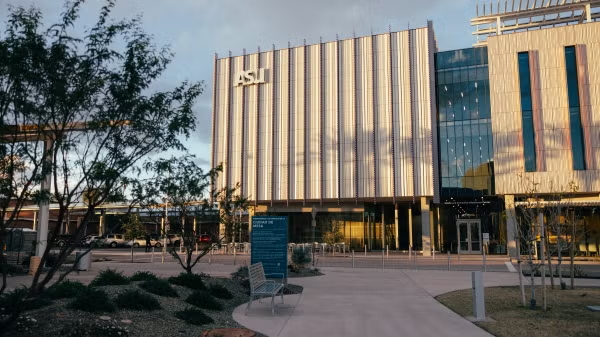
Exceeding great expectations in downtown Mesa
Anyone visiting downtown Mesa over the past couple of years has a lot to rave about: The bevy of restaurants, unique local shops…

Upcoming exhibition brings experimental art and more to the West Valley campus
Ask Tra Bouscaren how he got into art and his answer is simple.“Art saved my life when I was 19,” he says. “I was in a…

ASU professor, alum named Yamaha '40 Under 40' outstanding music educators
A music career conference that connects college students with such industry leaders as Timbaland. A K–12 program that…


